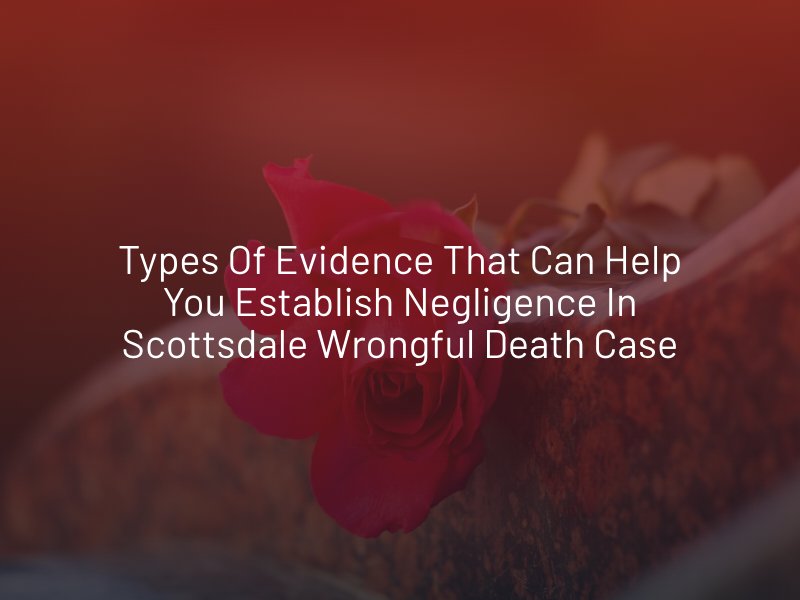Scottsdale Wrongful Death Lawyer
In the wake of a tragic loss, navigating the complexities of legal proceedings while coping with grief can feel overwhelming. Our experienced Scottsdale Wrongful Death Lawyer understands the profound impact that the loss of a loved one can have on a family. Arrange a free consultation today by calling (702) 620-9871 or messaging us online.
Why Choose Harris & Harris Injury Lawyers
A Harris & Harris attorney for Las Vegas personal injury victims believes that every individual deserves justice and we are here to ensure that those responsible are held accountable for their actions. With compassion, empathy, and unwavering dedication, we will guide you through this challenging time and advocate tirelessly on behalf of your loved one.
- We prioritize building strong relationships with our clients by working closely with you every step of the way.
- We maintain an open line of communication to alleviate any concerns and provide clarity throughout the legal process.
- Regular points of contact are established to ensure transparency and peace of mind for our clients.
What Constitutes Wrongful Death in Arizona?
Under Arizona Revised Statutes Section 12-611, wrongful death occurs:
“When death of a person is caused by wrongful act, neglect or default, and the act, neglect or default is such as would, if death had not ensued, have entitled the party injured to maintain an action to recover damages in respect thereof…”
In other words, wrongful death claims are civil actions brought on behalf of the deceased when, if they had survived, they would have had the right to pursue a personal injury claim. Some common circumstances that may constitute wrongful death in Arizona include when a person is killed due to:
- Car accidents caused by negligent or reckless driving.
- Medical malpractice due to a medical provider’s failure to provide the expected standard of care.
- Workplace accidents caused by unsafe conditions or employer negligence.
- Defective products.
- Dangerous property conditions leading to fatal accidents.
- Criminal acts such as assault or homicide.
Who Can File a Wrongful Death Claim in Arizona?
In Arizona, the right to file a wrongful death claim is typically reserved for specific individuals who are closely related to the deceased person. Under Arizona Rev. Stat. § 12-612:
“A. An action for wrongful death shall be brought by and in the name of the surviving husband or wife, child, parent or guardian, or personal representative of the deceased person for and on behalf of the surviving husband or wife, children or parents, or if none of these survive, on behalf of the decedent’s estate.
- Either parent may maintain the action for the death of a child, and the guardian may maintain the action for the death of the guardian’s ward.”
Arizona law specifies a particular order of priority among these eligible parties. For example, if the deceased person is survived by a spouse and children, the spouse typically has the primary right to file the claim. If there are no surviving spouses or children, the deceased person’s parents may have the next right to file the claim, and so on. A personal representative of the deceased can also pursue a case on behalf of the surviving family and the estate.
How Do I Prove Negligence in a Wrongful Death Case?
Proving negligence in a wrongful death case involves establishing several key elements to demonstrate that the defendant’s (at-fault party’s) actions or omissions directly contributed to the death of the individual. While the specifics can vary depending on the circumstances of the case, the following steps generally outline the process:
Duty of Care
Show that the defendant owed a duty of care to the deceased person. This duty typically involves acting reasonably to prevent harm to others. For example, a driver has a duty to operate their vehicle safely and follow traffic laws.
Breach of Duty
Demonstrate that the defendant breached the duty of care owed to the deceased person. This may involve showing that the defendant’s actions or omissions fell below the standard of care expected under the circumstances. For instance, if a driver was texting while driving and caused a fatal accident, they have breached their duty of care.
Causation
Establish a causal link between the defendant’s breach of duty and the death of the individual. In other words, demonstrate that the defendant’s actions or negligence directly contributed to or caused the fatal incident. This often requires expert testimony and evidence to connect the defendant’s conduct to the death.
Damages
Finally, prove that the wrongful death resulted in damages to the surviving family members or dependents. This may include economic damages such as medical expenses, funeral costs, and loss of financial support, as well as non-economic damages like pain and suffering or loss of companionship.

To gather evidence and build a strong case of negligence, several strategies may be employed:
- Investigation: Your attorney will conduct a thorough investigation into the circumstances surrounding the death, including collecting witness statements, reviewing accident reports, and obtaining relevant documentation.
- Expert Testimony: Expert witnesses, such as accident reconstruction specialists, medical professionals, or forensic experts, can provide critical testimony and analysis supporting the claim of negligence.
- Documentation: Compile documentation supporting the claim, including medical records, photographs of the accident scene, and any other relevant evidence.
- Legal Analysis: Analyze applicable laws and precedents to determine the legal standards of care relevant to the case and how the defendant’s actions or omissions may have violated those standards.
Successfully proving negligence in a wrongful death case requires meticulous preparation, persuasive presentation of evidence, and skilled legal advocacy.
What Forms of Compensation Can be Recovered in an Arizona Wrongful Death Lawsuit?
In an Arizona wrongful death lawsuit, eligible surviving family members or the deceased’s estate may seek various forms of compensation for the losses they have suffered as a result of the victim’s death. Some common types of compensation that may be recovered include:
Economic Damages
- Medical expenses incurred as a result of the deceased person’s final injury or illness.
- Funeral and burial expenses.
- Loss of financial support, including the income the deceased person would have earned over their expected lifetime.
- Loss of household services that the deceased person provided, such as childcare, household chores, or home maintenance.
Non-Economic Damages
- Pain, suffering, and mental anguish experienced by the surviving family members.
- Loss of companionship, guidance, and consortium.
- Emotional distress and trauma suffered by the surviving family members.
Punitive Damages
In certain cases involving extreme negligence or intentional misconduct, punitive damages may be awarded to punish the at-fault party and deter similar behavior in the future.
Call Our Scottsdale Wrongful Death Attorneys Today
If you have lost a loved one due to the negligence or misconduct of another, you may be entitled to compensation through a wrongful death claim. Contact Harris & Harris Injury Lawyers today to schedule a free consultation with our trusted Scottsdale Wrongful Death Attorney.


